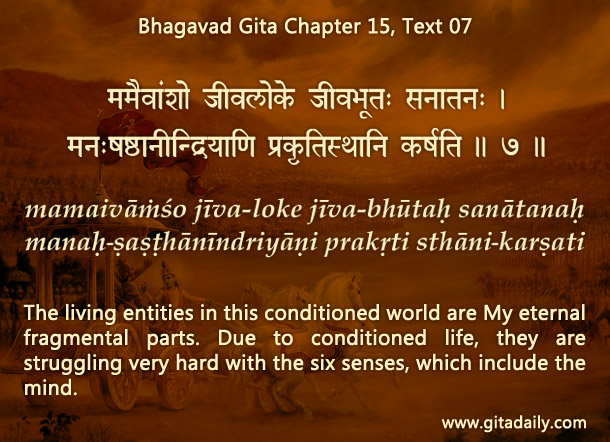We are all innately pleasure-seeking whatever we do, we do it for gaining pleasure.
But pleasure has a peculiar nature it eludes those who pursue it as their exclusive purpose, whereas it follows those who focus on contributing to a purpose greater than their own immediate gratification.
When we do things solely for the gratification they provide, our vision becomes narrow: “What am I getting out of this?” This narrowed vision breeds dissatisfaction because we soon find that we don’t get much out of whatever we are doing. Why? Because all material things are temporary, and their capacity to provide pleasure is finite and short-lived. Hoping to gain pleasure elsewhere, we do something new, but all gratification-driven activities end in dissatisfaction, again and again ad infinitum
The Bhagavad-gita discourages a gratification-centered lifestyle by stating (15.07) that those who live to gratify their own mind and senses end up with struggle and suffering. The same verse encourages a contribution-centered ethos by informing us that we are constitutionally parts of Krishna, implying thereby that we are not meant to be independent, isolated centers of enjoyment. When we do activities with a contribution-centered ethos, our purpose broadens: “How can I best serve?” Such broadening of focus happens best when we seek to serve Krishna because that devotional service attitude enables us to make the best contribution. That’s because Krishna is the greatest benefactor of all living beings, so serving him enables us to render the best possible service to others.
And serving Krishna contributes best not just for others’ good, but also for our own good. Why? Because he is the eternal reservoir of all pleasure and service connects us steadily with him, thereby granting us access to the topmost happiness.
Thus, the contribution-centered ethos eventually provides the best gratification too.


Hare krishna prabhuji.
Very brilient article. The moment we realize our constitutional position as etrnal part and parcel of krishna and by surrenderingin to him completely start contributing the loving devotional service to him, we achieve everlasting joy and fulfillment.